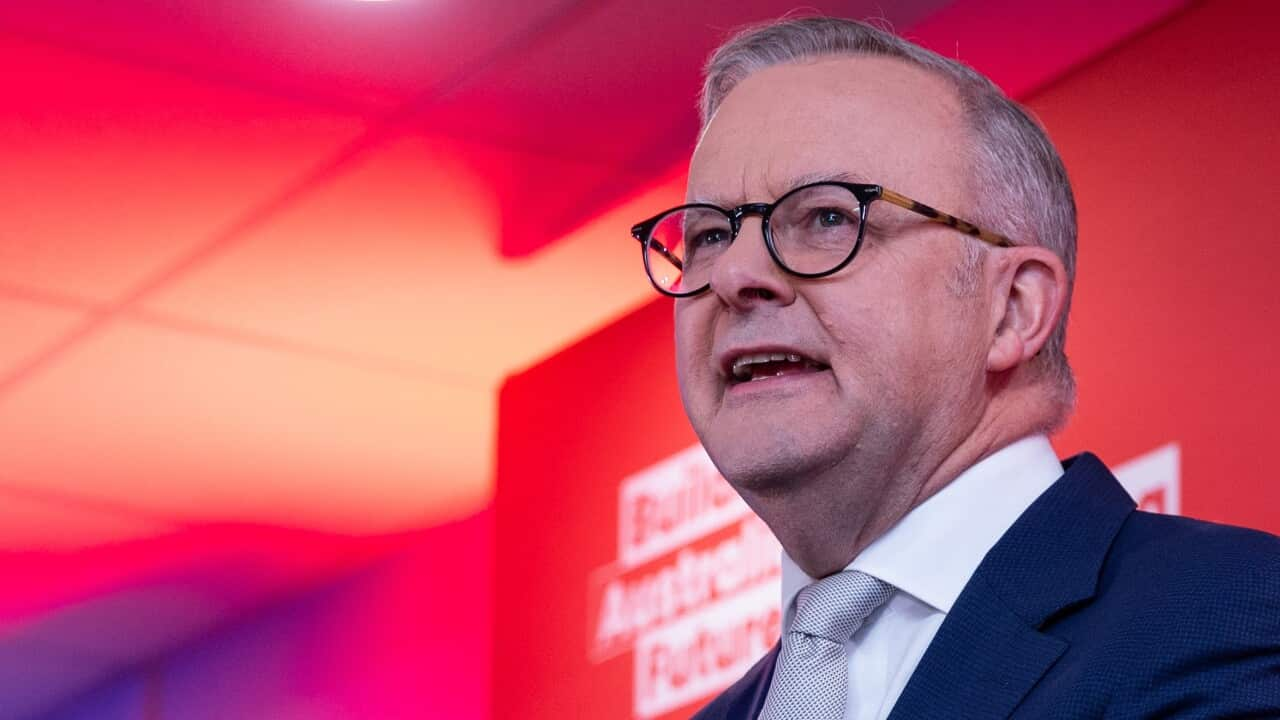Prime Minister Anthony Albanese has promised a guaranteed three days of subsidised childcare per week, with $1 billion going towards expanding quality and access, as part of Labor’s pre-election pitch to voters.
If Labor is re-elected, families earning less than $530,000 will qualify for the scheme, which will replace the current activity test model for accessing childcare subsidies.
“You don’t help families under pressure by pricing them out of child care; you don’t set Australia up to compete and succeed by holding children back or leaving them behind,” Albanese said as he launched the policy in Brisbane on Wednesday.
He said the policy change would benefit about 66,000 families.
The activity test requires parents to be in paid work or other approved activities to access a childcare subsidy and determines the level of government support based on the number of hours spent doing those activities.
“Parents don’t need to go through a bureaucracy or work a certain number of hours to want the best possible education for their child,” Albanese said.
He said Commonwealth childcare subsidies would increase $3.1 billion over four years, supporting an extra 200,000 kids to receive early education, an upcoming mid-year budget update will reveal.
“We are training more early educators and we’re paying early educators more,” Albanese said, pointing to a announced in August.
Prime Minister Anthony Albanese said scrapping the activity test would remove the need for parents to work a certain number of hours to ensure their children receive childcare. Source: AAP / Russell Freeman
The $1 billion fund, rolling out from July 2025, will focus on putting services on school sites where possible and supporting the growth of high-quality not-for-profit providers.
The three-day childcare guarantee will replace the activity test from January 2026 and will cost $427 million over five years.
Advocacy group The Parenthood said helping kids in their early years was critical, with one in five children starting school “developmentally vulnerable”.
This increased to two in five among Indigenous kids, chief executive Georgie Dent said.
“When children arrive at school behind, it is incredibly difficult for them to catch up to their peers over the course of their life,” Dent told Sky News.
She called the activity test a “punitive policy that has locked out as many as 126,000 children, particularly from lower-income households, disadvantaged backgrounds and First Nations children”.
Its removal was also welcomed by the Secretariat of National Aboriginal and Islander Child Care, with the peak body saying it would help close the gap.
Opposition, Greens critical of government’s plan
Deputy Opposition leader Sussan Ley was critical of the activity test being scrapped, saying childcare spots were at a premium, especially in rural towns. Long waiting lists could dissuade families from moving to the regions, she said.
“We have to have that priority for working families because that’s got to be central to the actual provision of childcare,” she said.
Meanwhile, the Greens’ early childhood education spokesperson, Steph Hodgins-May, said the reforms fell short as parents would still be stuck with high fees and long waiting lists, meaning some children would still miss out.
What could universal childcare look like?
A September Productivity Commission report found children from vulnerable or disadvantaged communities would benefit most from early childhood education but were the least likely to attend.
A universal childcare system would ensure every child aged up to five has access to high-quality early childhood education and care for at least 30 hours or three days a week, for 48 weeks of the year, the report said.
It said the best way to achieve this and boost attendance for low and middle-income earners was to scrap the activity test and expand funding for families earning up to $80,000 and households less than $140,000 with multiple children under five.

